A significant feature of the Curriculum are our Specialist Programs which operate for all classes on a weekly basis; Japanese, The Arts – Music, Physical Education and The Arts – Visual Arts.
Specialist News
A ‘Specialist News’ update for Japanese, PE, Art, Music and Library will be provided each term (via Compass and the BNPS website). Click here to access Specialist News.
Japanese
In Japanese lessons, Year One students:
- Are exposed to Japanese pronunciation, intonation and body language of native speakers of Japanese.
- Use the language in structured situations and activities related to their local environment: self, family, home, classroom and community.
- Begin to use sets of words and sentences that are encountered frequently in the classroom, and to insert words into simple sentences.
- Develop their language skills and understand Japanese culture through a variety of activities such as language games, origami, songs and Japanese video/DVDs.
- Participate in a Japanese calligraphy contest (Semester 2).
- BNPS students participate in a Japanese incursion every two years (sushi making demonstration, Kendo Martial Art or Japanese Drumming).
For more information, see Specialist Programs – Japanese.
The Arts – Music
For more information, see Specialist Programs – Music.
Physical Education
In PE lessons, Year One students:
- Continue with revision of Fundamental Motor Skills learnt in Foundation and move on to bouncing throwing, leaping and dodging.
- Incorporate these skills into minor games to demonstrate co-operation and teamwork.
- Participate in an Intensive Swim Program.
For more information, see Specialist Programs – Physical Education.
The Arts – Visual Arts
For more information, see Specialist Programs – Art.
Library
Prep – Year 2 students also receive a weekly specialist Library lesson taken by a trained Teacher Librarian.
For more information, see Library.


